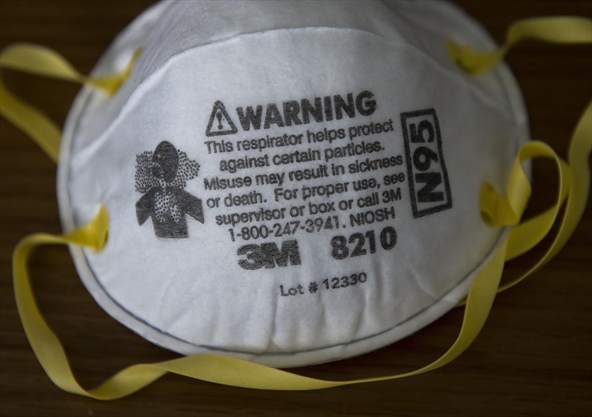Ontarians are more worried about their physical and mental health — as well as their personal safety — than they were earlier in the pandemic, a suggests.
Eight months into the that has killed 3,800 people in the province, Campaign Research found more and more poll respondents are expressing concerns about their well-being.
“It’s clearly taking a toll. People are feeling it,” Campaign Research principal Nick Kouvalis said Wednesday.

The firm found 64 per cent are concerned about their physical health while 56 per cent are worried about their mental health.
In June, Campaign Research asked the same questions and found 57 per cent were worried about their physical health and 46 per cent had mental health concerns.
Similarly, the latest poll found 59 per cent are worried about their personal safety compared to 43 per cent about six months ago.
Campaign Research polled 1,001 people across Ontario from last Tuesday through Thursday using Maru/Blue’s online panel.
It is an opt-in poll, but for comparison purposes, a random sample of this size would have a margin of error of plus or minus three percentage points, 19 times out of 20.
“Not to be critical of any level of government, because they have all spoken about mental health and put dollars toward it,” said Kouvalis, who has worked with Conservative and Liberal candidates across Canada and managed the winning Toronto mayoral campaigns of Rob Ford and John Tory.
“But the mental health discussion has taken a back seat to all of the other emerging issues that are also important, such as the vaccines,” he said.
“Relatively speaking, people are more concerned today than they were in June.”
The increased anxiety around personal safety may be a combination of a number of factors.
“It could be that some people are feeling unsafe in their homes due to domestic abuse,” said Kouvalis.
“Or it could be that they have to go out to work and are more worried about catching COVID-19 because the (infection) numbers are up,” the pollster said.
“Of course, it could be that there’s a perception crime is on the rise due to shootings (in Toronto) and so on. We can’t be sure,” he said.
“It’s hard to say, but all of these issues combined may be connected to the mental health number being up (poll over poll) and the physical health number being up.”
Overall, it appears to “point to a deterioration of mental health” among Ontarians since the pandemic took hold last March.
“All levels of government, all (political) parties, all health officials, and the media need to let the public know what supports there are to help them,” said Kouvalis.
“Because basically, people are more worried about everything except for their personal rights and freedoms,” he noted.
In June, 37 per cent expressed worry that those liberties were being trampled on due to the various authorities’ response to the pandemic.
This month, 34 per cent shared that concern.
“That’s within the margin of error so relatively speaking people are feeling the same way in December as they did in June.”
Another worry that is essentially unchanged over the past six months is concern “about your ability to visit with extended family” due to restrictions designed to stop the spread of the virus.
About two-thirds — 64 per cent — said they were worried about that compared to 60 per cent in June.
But 51 per cent are worried about the impact of COVID-19 on their social life, up from 43 per cent in the summer poll.
“All of that stuff is going to have some bearing on how happy you are,” said Kouvalis.
Robert Benzie is the Star’s Queen’s Park bureau chief and a reporter covering Ontario politics. Follow him on Twitter:
